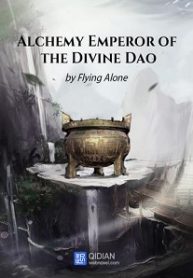Holy Roman Empire - Chapter 125
Chapter 125: Chapter 12, The Holy Roman Alliance
Cʘntinue reading on ΒƟXN0VEL.ϹʘM
Translator: 549690339
Since no one had any objections, the plan to create the Austrian economic circle naturally passed with a high number of votes.
As for how to implement it, honestly, Franz really didn’t know; times were different, national conditions were different, and many things could not simply be copied directly.
(vitag.Init = window.vitag.Init || []).push(function(){viAPItag.display(“vi_765923973”)})
Including recruiting younger brothers, ideological work must be done one by one, and the benefits promised to each sub-state may all be different.
On this point, Franz still trusted Metternich, after all, the “European Chancellor” was experienced, and balancing the interests of all parties was his expertise.
In Franz’s opinion, this economic alliance could also transform into a political alliance, a military alliance, in the future – as the economic development proceeds, it’s just a matter of time before everyone’s interests are bound together.
Being prepared for a rainy day was therefore very important.
For example, the name of the alliance must be representative; Franz thought that The Holy Roman Alliance was a good choice.
“Your Majesty, if we name it Holy Roman, I fear the Italian countries would find it difficult to accept emotionally,” said Prime Minister Felix thoughtfully.
“What if we place the headquarters of the alliance in Rome? We could even set it up right next to the Vatican in the Holy Land. With both the sacred and Rome present, there shouldn’t be any problems with this name, right?” Franz retorted.
Metternich advised, “Your Majesty, placing the headquarters in Rome would damage the Empire’s reputation within the Alliance.”
After thinking it over, Franz said, “That’s not important. The essence of the economic alliance is that it revolves around Austria; we’ve already taken the leading position, so the impact on reputation is minimal.
We can also send a signal to the outside world that this is merely an economic union, lowering the vigilance of other countries.
We don’t have to propose this name directly. We just call everyone together to decide where to establish the headquarters. As long as Austria does not participate in the competition, where could possibly be more competitive than Rome?
(vitag.Init = window.vitag.Init || []).push(function(){viAPItag.display(“vi_765923973”)})
Once the headquarters are established, we’ll have His Holiness the Pope propose the name. Pius IX won’t refuse something that can expand his influence.”
Franz cared least about empty titles. If the economic alliance’s headquarters were to be situated in Vienna, even if everyone agreed, Franz wouldn’t dare to use the Holy Roman banner.
Don’t think that just because the Holy Roman Empire has been extinct for so many years, everyone has forgotten it. The European countries are very vigilant; if Austria hinted at rebuilding Shinra in diplomacy, it should expect no good days ahead.
To play it off to the side like this is still possible, with headquarters in Vatican, next to the Holy Land of Christendom, having both sacred and Rome – such a name is also justifiable.
“Your Majesty, how does this benefit us?” Metternich asked, puzzled.
It’s like a religious branding of The Holy Roman Alliance. It has nothing to do with the Holy Roman Empire of the Habsburg dynasty, and it doesn’t seem like there are many benefits for Austria.
“On the surface, there are indeed no benefits, but in reality, The Holy Roman Alliance and Holy Roman Empire are only two words apart.
If the economy develops further, we can let the media change the name a bit, like calling it the Holy Roman Economic Empire, or just the Holy Roman Empire directly.
These are all names used by the media, unrelated to us, and other countries’ governments would have to grit their teeth and accept it even if they have objections,” Franz explained calmly.
The influence of the Holy Roman Empire was profound in Europe, especially in the Germany Region, known as the First Teutonic Empire, also the only Empire recognized by the German States.
This was a huge political resource left by the Habsburg dynasty; how could Franz not utilize it?
(vitag.Init = window.vitag.Init || []).push(function(){viAPItag.display(“vi_765923973”)})
The more it’s mentioned, the more accustomed people will become. Ordinary people don’t have so much effort to distinguish between this “Holy Roman Empire” and that “Holy Roman Empire.”
Once everyone acknowledges this “Holy Roman Empire,” the foundation for Austria’s annexation of the people of the South German States will also be established.
With economic ties and political infiltration, at that time there wouldn’t even need to be any use of military force to achieve unification.
It is impossible to lend anyone tools or titles.
— “Zuo Zhuan” – “Battle of Ao”
Franz was taking advantage of the time difference to preemptively claim naming rights; as long as Austria could grow and expand its advantages over the states, it could create a fait accompli by substituting one for the other.
Public sentiment is fickle; the unification of the Italian Area and the Germany Region came about because the idea of unification deeply penetrated the hearts of the people.
Without that foundation, the Kingdom of Sardinia wouldn’t have had the power to unite the Italian Area; the Kingdom of Prussia would have probably experienced the Habsburg dynasty’s hardships, beaten into semi-paralysis by the German Confederation joined with foreign forces.
Prime Minister Felix sneered, “As long as the people of the Germany Region acknowledge it, even if the governments of the states are reluctant, they will have no choice when the time comes.
To avoid foreign interference, it’s better if we act in secret, signing secret treaties with these states one by one, and announce it to the outside world after the agreement has been reached.”
As a staunch supporter of the Teutonic cause, Prime Minister Felix was unwilling to let go of any opportunity that could expand into the Germany Region.
(vitag.Init = window.vitag.Init || []).push(function(){viAPItag.display(“vi_765923973”)})
In his view, The Holy Roman Alliance, or rather, the Holy Roman Empire, was the best weapon to counter the concept of Lesser Germany put forward by the Prussians.
If the powers of Prussia and Austria continue to grow, the German States will be left with only two choices: either join the Lesser Germany led by Prussia or join the Holy Roman Empire led by Austria.
Yes, it will not just be The Holy Roman Alliance in the future, but the Holy Roman Empire.
Due to religious beliefs, the North German states are likely to lean toward the Kingdom of Prussia, but the South German States are different; they naturally tend toward Austria.
Under the influence of Franz, voices advocating a joint Prussian-Austrian partition of the Germany Region have emerged, not only in Austria but also finding supporters in Prussia.
Before the unification of the Germany Region, Prussians themselves did not believe they could unify it; Frederick William IV’s highest goal was merely to incorporate Northern Germany.
The Junker nobles were not yet as arrogantly domineering as in later generations and would probably turn tail before the battle against Austria or France even began.
It wasn’t a matter of whether they could fight or not, but rather that they simply could not win.
Otherwise, during the latter stages of the Crimean War, the Kingdom of Prussia would have made its move as England and France and the Russians were mired in tough fighting; defeating Austria would have allowed them to unify the Germany Region.
Do not look to the invincible German Army of the future; it was, after all, the future, not the present. The rise of the Kingdom of Prussia commenced after the reforms of 1848 and entered a period of rapid development.
At present, it was still a feudal dynasty, and its composite national power constrained the strength of its military forces. The successes of history were full of coincidences—the Austro-Prussian War and the Franco-Prussian War were both gambles on national destiny.
It was not as the textbooks claimed, that victories were due to their system, to mandatory education, or to overall national power.
If the Austrian Government had not been self-destructive, using the wrong people and botching military deployment, the Austro-Prussian War would not have ended so easily. If the war had dragged on for three to five months, Prussia would have been left in tears.
The Franco-Prussian War was even more of a farce, with Napoleon III, already buoyed by pride, presuming himself to be the reincarnation of the God of War. He did not mobilize the entire nation and rashly declared war on the Kingdom of Prussia, pitting his 220,000-strong French Army against the 470,000-strong Prussian Army.
The outcome goes without saying. After the Franco-Prussian War, the unification of Germany, having undergone some packaging, established the spirit of the German Army, with its combat strength at its peak.
As a successful entity deserving respect, Franz was very wary of the Prussians, who were on the rise.
In his view, he either had to preemptively disrupt Prussia’s path to unification, or simply let Prussia unify the Germany Region and shift Austria’s development direction.
He had no choice in the matter; reality had made the decision for him. The Austrian public could not tolerate the loss of their leadership position in Germany, and the Austrian Government could not bear the political consequences.
Hence, Franz could only proceed down the first path. Simply disrupting Prussia’s plan was not enough. Since Austria’s energies were tied up in the Germany Region, they naturally had to reap some benefits.
A joint Prussian-Austrian division of the Germany Region was a fine concept. As compensation, Austria would support Prussia’s expansion in other directions.
All right, this was purely a ploy. Aside from naïve teenagers, the majority of politicians did not believe that Austria would genuinely support Prussia’s external expansion, especially since they had no direction left to expand into.
Expanding into Northern Europe, have they asked the Russians?
Expanding into the Low Countries, do they have the consent of the French?
As for seizing overseas colonies, where is the powerful navy?
“The issues of negotiation will be handled well by our Ministry of Foreign Affairs. The current issue is where the common interest of this alliance lies, and what we can use to entice them to join?” Metternich asked indifferently.
Since it was about binding interests together, it was essential to first make everyone see where the benefits lay.
“We can imitate the German Customs Union, reducing tariffs together to facilitate the flow of goods.
We can also grant the sales rights of certain products to powerful factions in each country, bribing them with interests.
For example, our competitively advantaged agricultural products.
If we sell them directly, we will surely harm the interests of the local Nobility. However, if we let them handle the sales, such issues will not arise.
These Sub-States would have to import food from outside anyway. Where they buy it from doesn’t change anything, does it? With lower tariffs, everyone’s profits would even increase,” Finance Minister Karl explained.
In simple terms, it meant conceding parts of the profits to local Nobility in exchange for the unimpeded flow of Austrian industrial and commercial goods.
Once the Nobility’s interests were satisfied, the interests of the capitalists were naturally sacrificed. These Sub-States were still feudal monarchies with Nobility in control. Bribing them meant bribing the government.
“No, if we do that, how can we ensure the profits of our agricultural products?” Archduke Louis objected.
The interests of any industry are limited, and each link in the industry chain seeks to extract profits. If one link takes more, another inevitably takes less.
“Don’t forget, we can enter the market with lower tariffs, giving us a price advantage. We can also manipulate the Alliance to raise tariffs on foreign agricultural products, protecting everyone’s interests.
After eliminating the competitors, we can further expand our overall grain exports; we can even monopolize the grain imports of the German States.
Austria’s grain production has not yet reached its limit, and there is still a wealth of fallow land available for cultivation.
After serfdom is abolished, and the enthusiasm of farmers for grain growing increases, domestic grain production is set to explode.
If we do not open up new markets, our domestic grain will likely suffer from massive unsold stockpiles. What good is discussing profits when the grain can’t even be sold?
To open up new markets and give up a bit of the immediate profits in exchange for greater profits in the future—that’s not too much to ask, is it?” Finance Minister Karl persuaded.
It must be said, his theory was very logical. Profits aside, the grain first had to be sold; what good would it do to talk about profits if the grain just lay unsold at home?
This wasn’t much different from dumping goods at low prices in later ages; however, the low price was only applicable to wholesale. The profits went into the hands of the elite, and the market price of grain still wouldn’t fall much.














